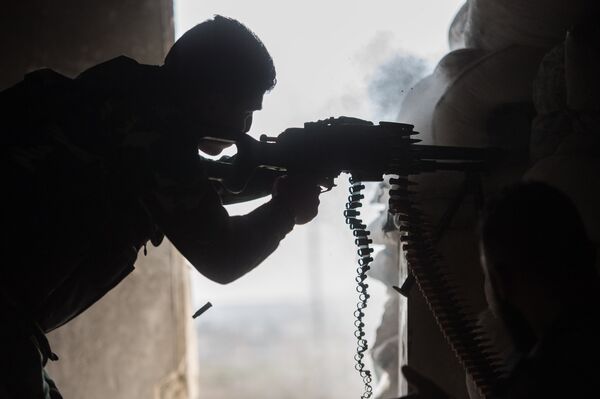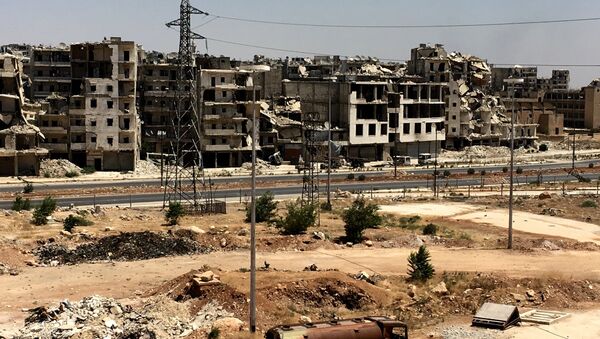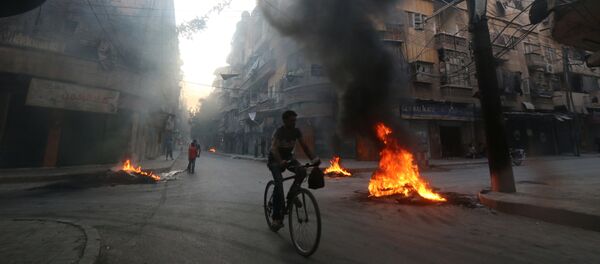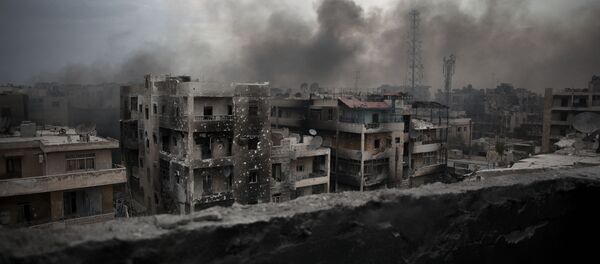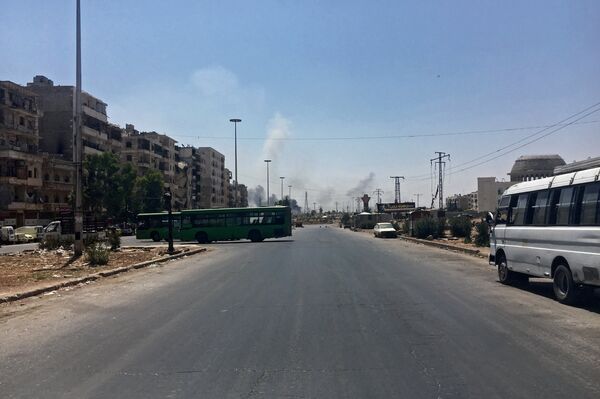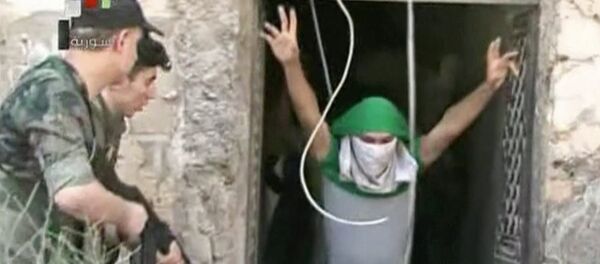A RIA Novosti correspondent was one of the first foreign journalists to reach Aleppo after the the so-called road of life into the city was opened and visit front line positions on the southwestern front, accompanied by special troops from the Syrian army.
Unplanned Night Stop
Contradictory information has been coming from Aleppo for the last ten days — on the advances by the Syrian governmental troops and an offensive by thousands of jihadists.
Our column stopped at a checkpoint near Aleppo International Airport. An officer told our group's commander that it would be impossible to enter the city today. There was no point in arguing. We parked the cars and inspected our lodgings for the night.
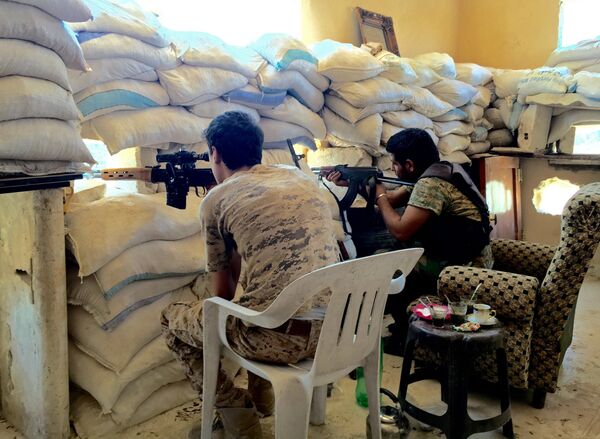
Syrian soldiers invited us to have dinner with them. The roar of fighting in the city did not let up, only calming down for a short while before white and black pillars of smoke began to billow in the sky once again.
Detour
We rose at dawn. After quick preparations we continued on our way. Several soldiers traveled in each jeep, aware that the trip could run into trouble at any moment.
After turning off a damaged country road our column came to a halt. The commander becomes irritated as the guide has already gotten lost twice.
"We will have to wait until a more experienced guide comes from the city. We were lucky twice, we will not tempt fate a third time. We are not far from the enemy and a wrong turn could cost us our lives," the colonel cautioned.
The RIA correspondent reached Beni Zeid without running into any difficulty and Syrian soldiers accompanied by militiamen from the Kurdish People's Protection Units (YPG) meet us at the entrance to the neighborhood. It is impossible to find even one undamaged house. The district is in ruins and the road has been obliterated by shelling.
Finally, our column reaches the point where they will be stationed, somewhere in a southwestern quarter, where only half a mile separates us from the enemy. The air forces and artillery operate continuously. Air bombs are blowing up such close range that it seems like the window glass will fall down on our heads.
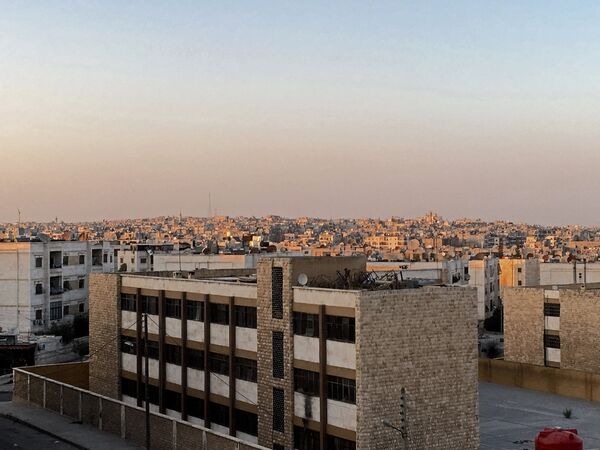
Southwestern Front
In early August, the leaders of 15 militant groups created a union and announced a large-scale operation to try break through the encirclement and capture Aleppo. Up to 8,000 fighters from neighboring provinces have been deployed to Aleppo under the Jabhat Fatah al Sham leadership (previously known as al-Nusra Front terrorist group).
"Those, who are considered to be moderate by the West, joined al-Nusra [Front] a long time ago. They use suicide bombers, car bombs and even shells with some sort of poison gas. They are doing their best to try to break through the blockade in the eastern quarters," the colonel said.
The Syrian army managed to repel four large-scale militant attacks in the last ten days. Over 2,000 jihadists and hundreds of military hardware units were destroyed, according to military intelligence data.
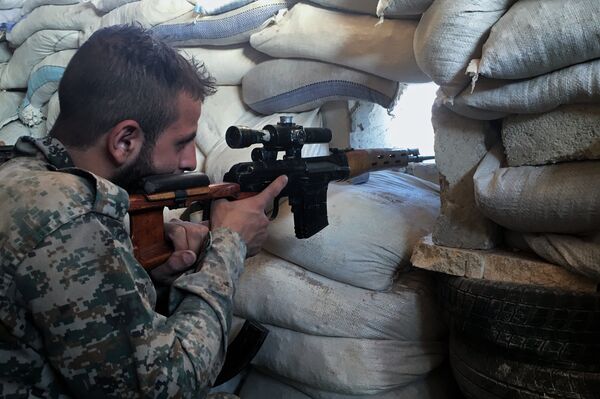
A number of governmental elite units, headed by the most experienced officers, have been deployed in the area to conduct combat operations. Syrian national militia troops and Lebanese Hezbollah fighters help the Syrian army along the most dangerous stretches of the front.
"I've never seen such attacks, neither near Damascus nor in Deir ez-Zor. The terrorists came under a heavy fire but continued to advance in their hundreds. We were forced to retreat for a few hundred meters… in order to regroup our forces," Akil, responsible for the main firing position near the artillery school, said.
The Syrian governmental troops are expected to launch a counterattack in the morning.
The army forces and militia have the task of regaining the lost positions and reopening the main supply route to Aleppo through southwestern gate to the city.
